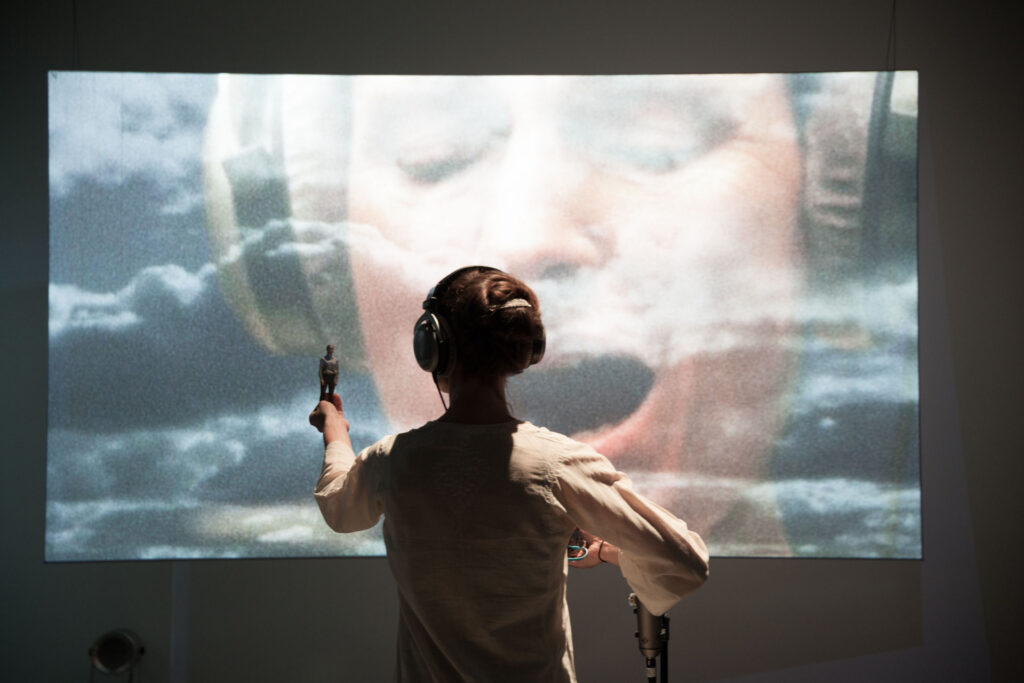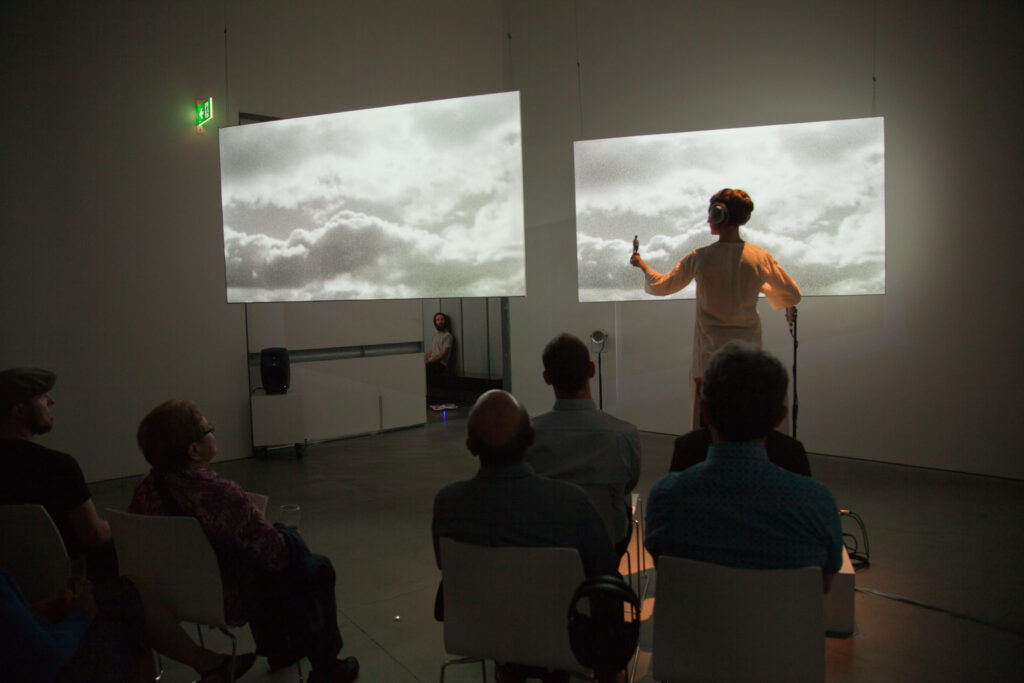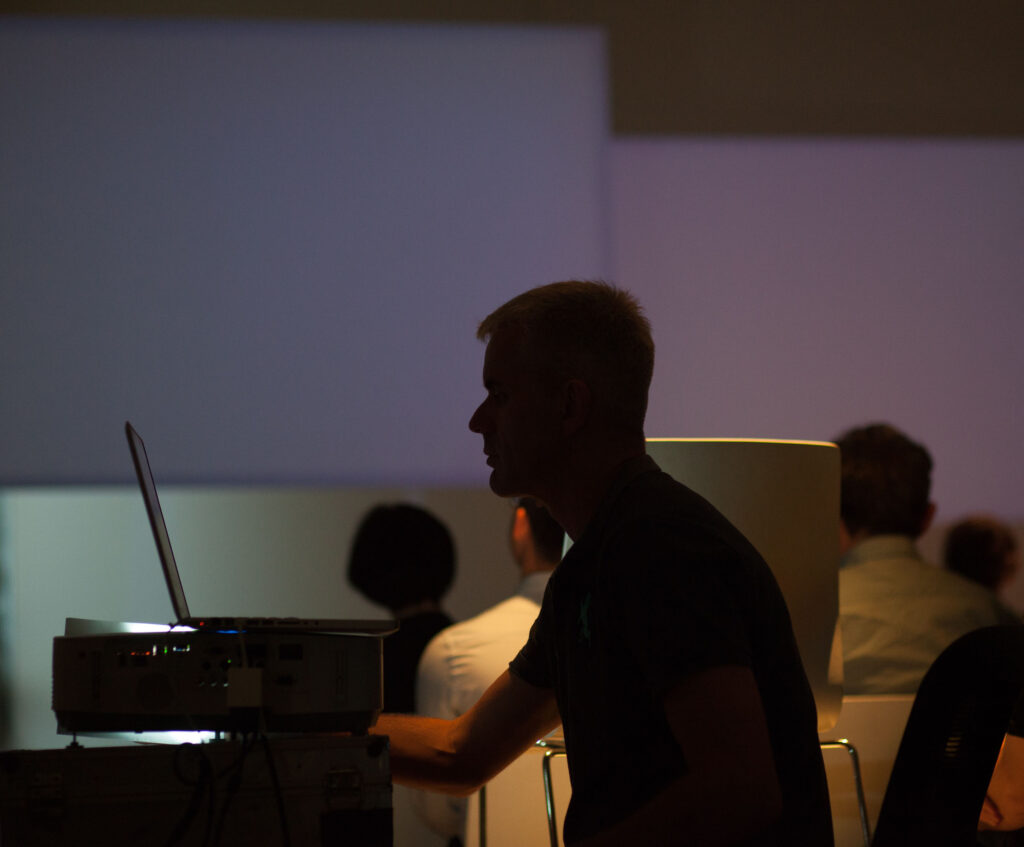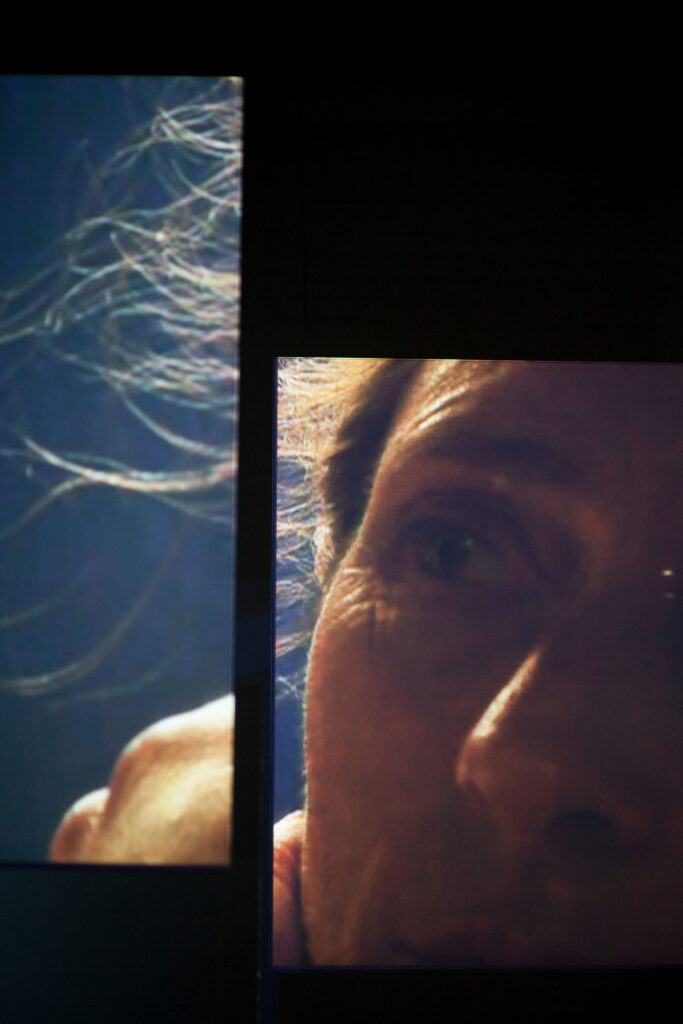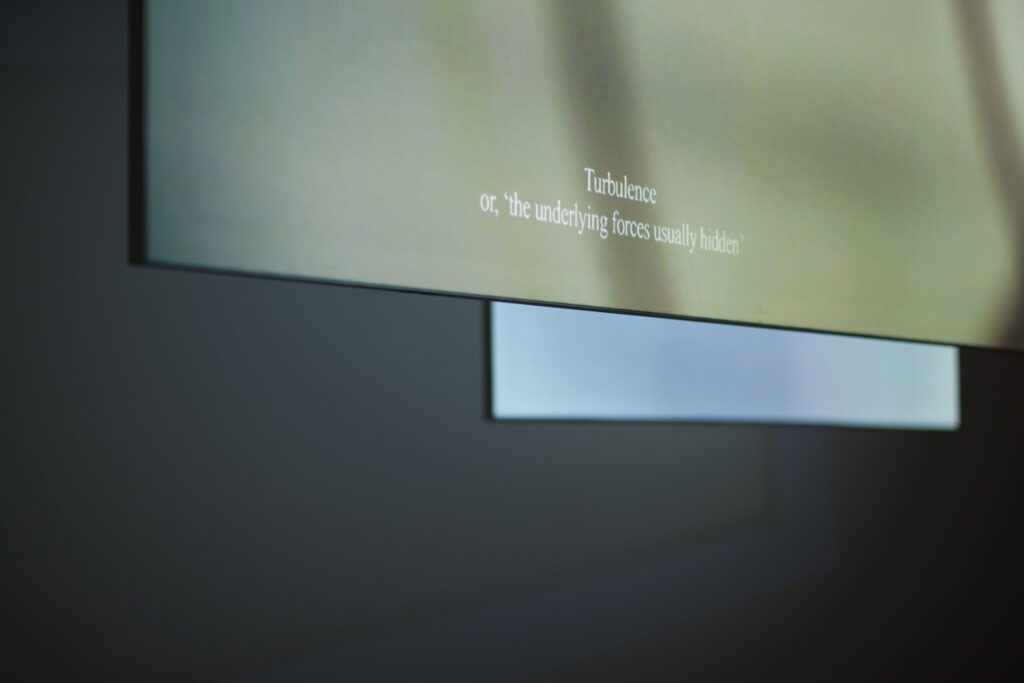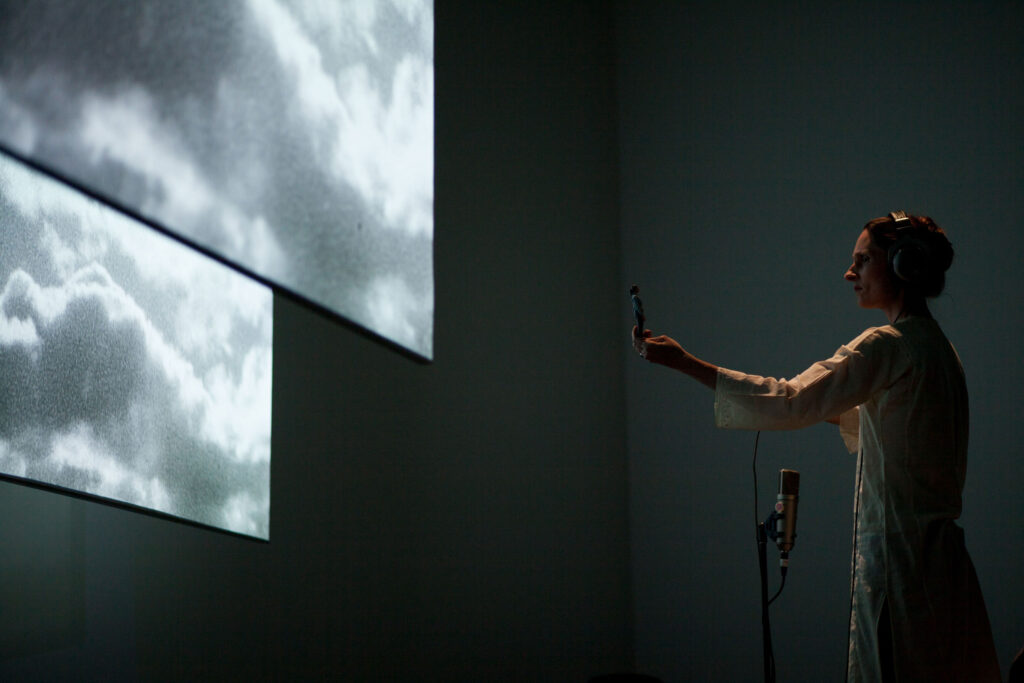Digital iterations question the singularity and finality of a live work and so inherently lead towards a way of making that is fluid, continuing and focused on artistic inquiry. Through multiple presentations, they provide space for learnings to be expressed in new ways, which support a collaborative devising process. Crucially, digital iterations also help situate the work in a community of practice by providing more opportunities to open the work up to others for feedback. An interconnected, open development emerges through the dual modes of collaboration and openness, bringing value to both an individual or collective practice, and a community of practice.
The Agile Opera project adopted a model of openness and varied input through industry symposia and Agile Chambers, a Presentation & Program event at the RMIT Design Hub. This allowed us to receive constant & continuing feedback on our direction and work, ensure our research was a relevant contribution to the arts ecology and provided a platform for me to develop my voice as a researcher. Through an open development, digital iterations can similarly support such an ecosystem.
This value can be seen through the development of Turbulence, moving from live to digital and back to live presentations, with an increased shared understanding of practice and form. These learnings were fed back to other practitioners through Agile Chambers, bringing back that value to a community of practice.
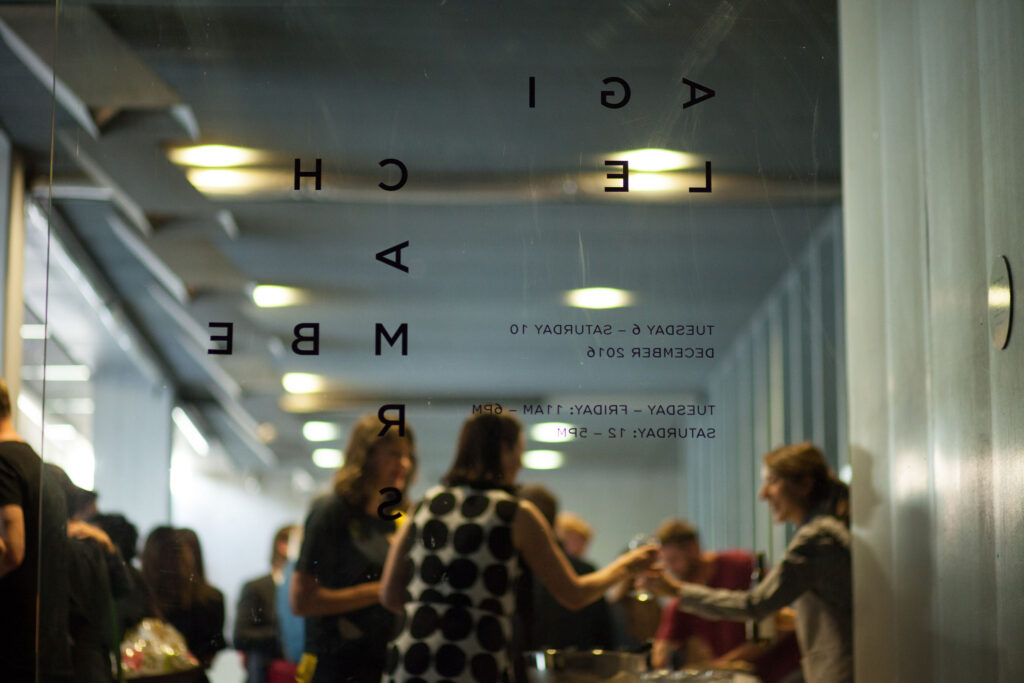
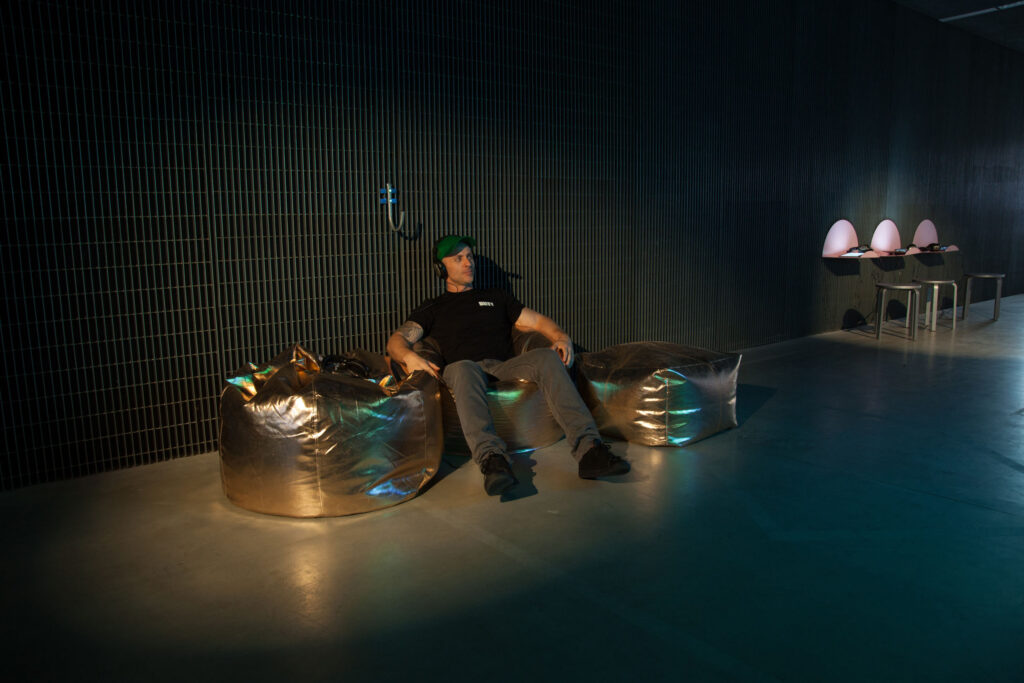
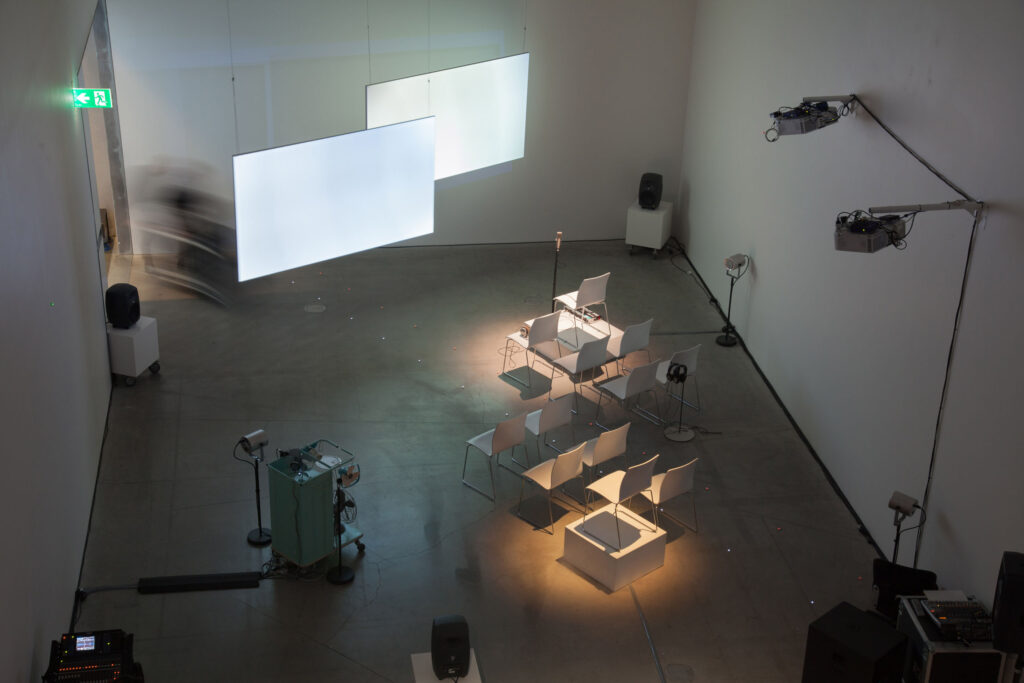
Agile Chambers
From 6-10 December 2016, the Agile Opera project had a public showing of findings and process at a Performance & Program called Agile Chambers (Fig 9). Through a co-location of research and artistic activities, we opened up the interconnected layers of the project. The program included a launch, showing of our research, the active development of Digiworks, industry discussion/feedback sessions, as well as the development and performance of a new iteration of Turbulence.
I conducted interviews with key creatives at Chamber Made about the development of digital iterations through the Digiworks Program: Artist Associates Erkki Veltheim (Another Other) and Sarah Kriegler (Captives of the City), and erstwhile CEO Tim Stitz about the development of Turbulence.
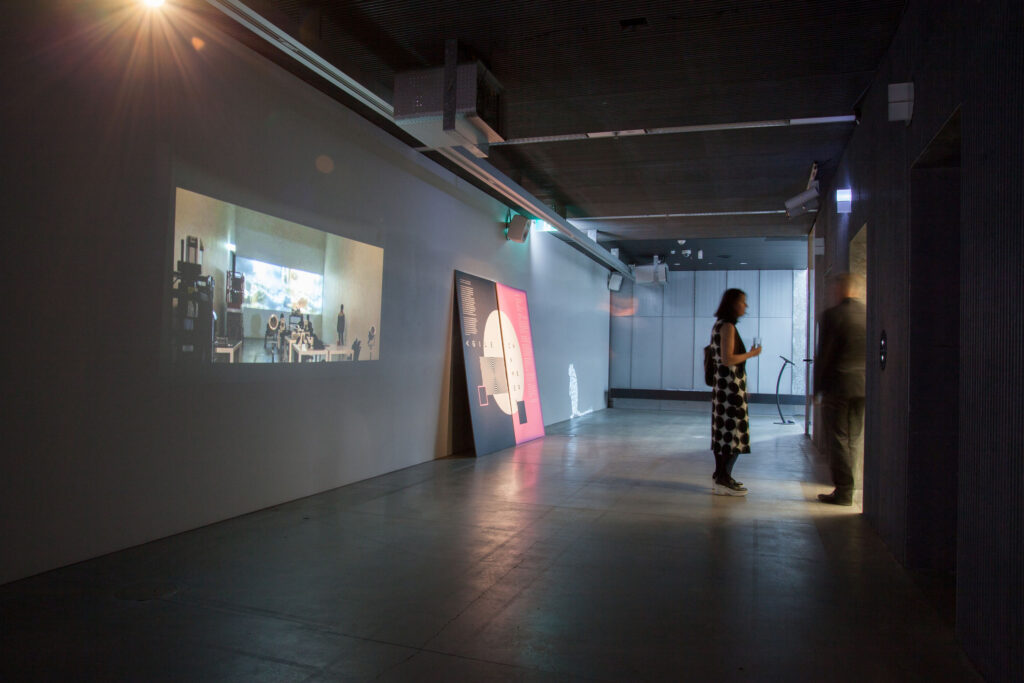
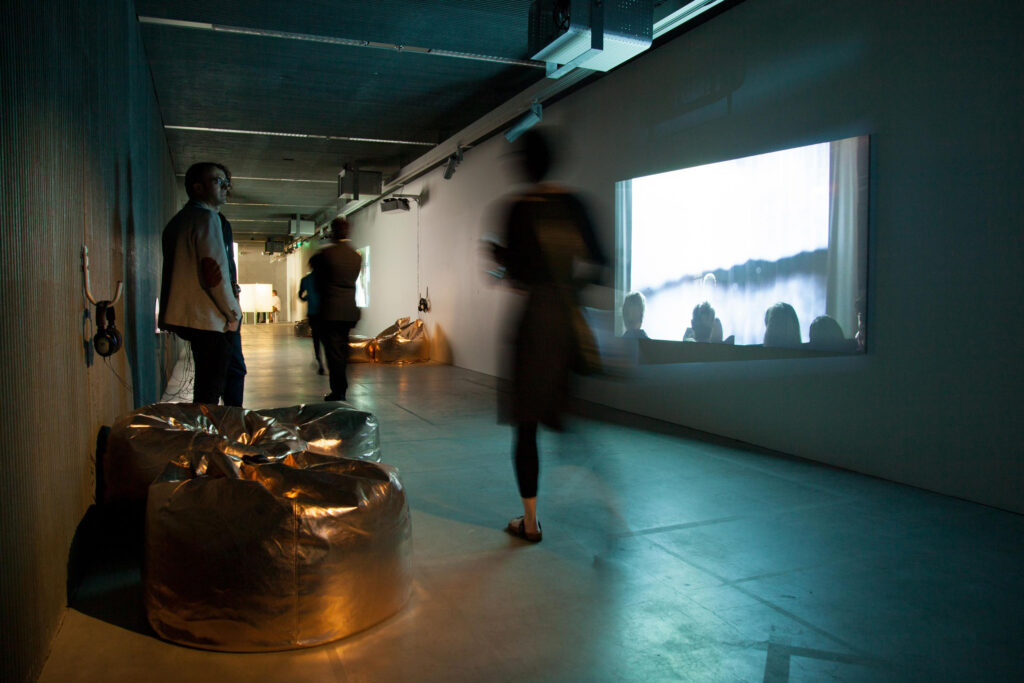
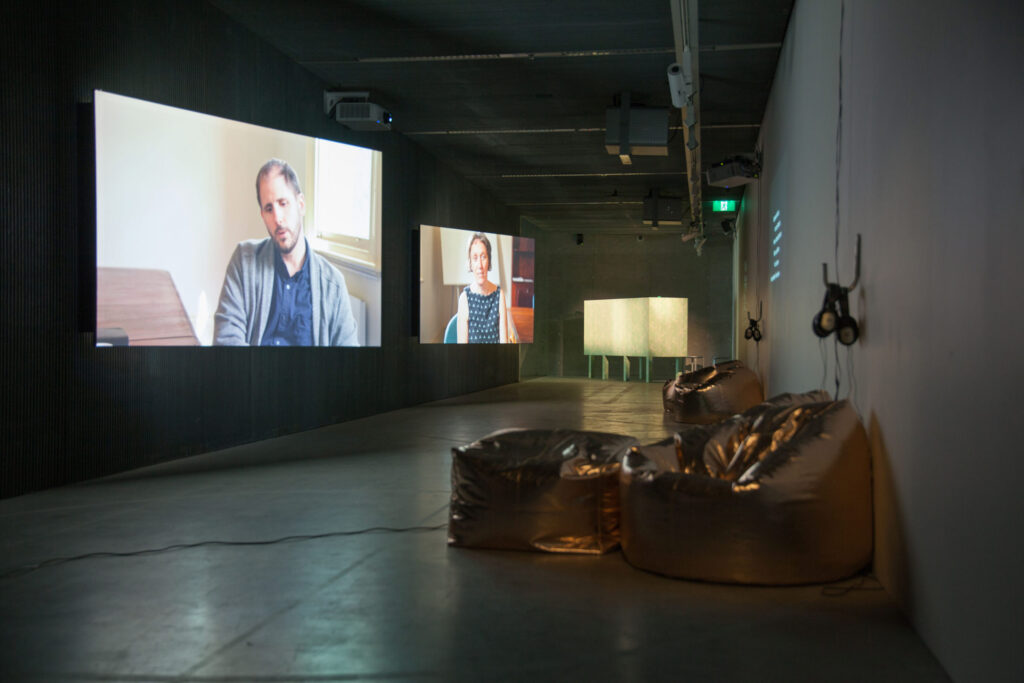
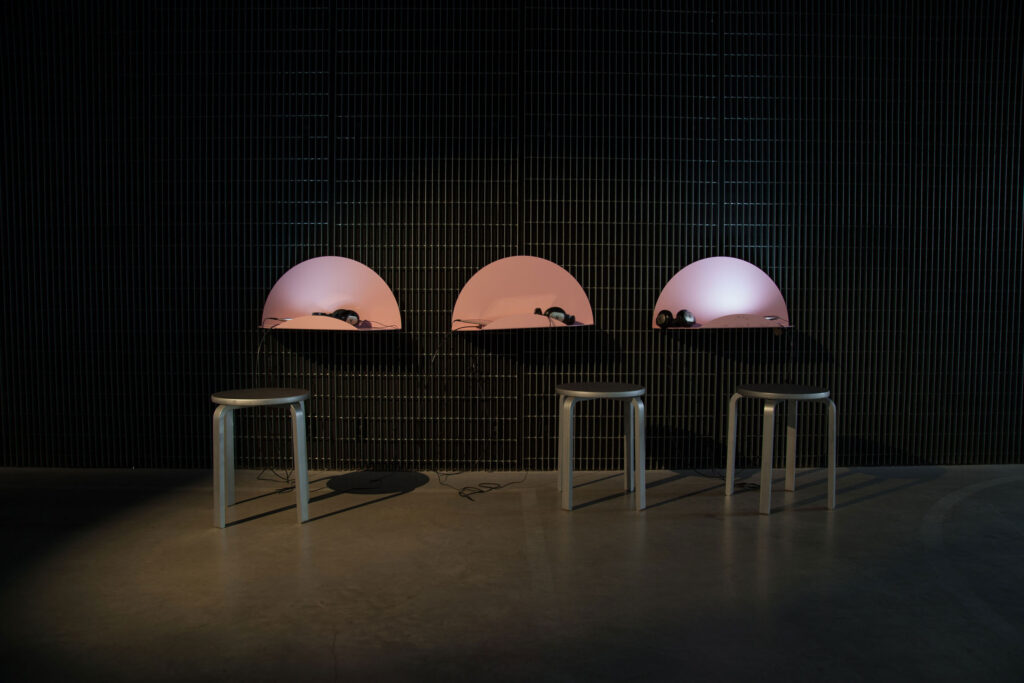
Turbulence
The Agile Chambers development of Turbulence situated creative development, presentation, showing and discussion in the same space. Via video-link the composer of Turbulence, Juliana Hodkinson prefaced their most recent iteration by saying “This week’s iteration of Turbulence as brought us back full circle, to an exercise in chamber music; with simply an expanded understanding of the overlap between voice, instrument, media and technology, and some added agility.” This speaks to the value generated through a process of digital iteration on the level of personal and collective creative practice.
